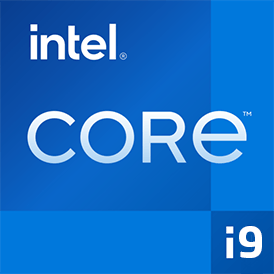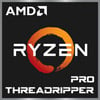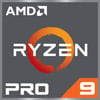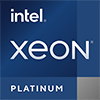
Intel Core i9-13900KS Benchmark, Test and specs
Last updated:
The Intel Core i9-13900KS was released in Q1/2023 and has 24 cores. The processor can process 32 threads simultaneously and uses a mainboard with the socket LGA 1700. In the Geekbench 5 benchmark, the Intel Core i9-13900KS achieved a result of 2,221 points (single-core) or 24,854 points (multi-core).

| Name: | Intel Core i9-13900KS |
|---|---|
| Family: | Intel Core i9 (78) |
| CPU group: | Intel Core i 13000 (17) |
| Architecture: | Raptor Lake S |
| Segment: | Desktop / Server |
| Generation: | 13 |
| Predecessor: | Intel Core i9-12900KS |
| Successor: | Intel Core i9-14900KS |
CPU Cores and Base Frequency
The Intel Core i9-13900KS has 24 cores. The clock frequency of the Intel Core i9-13900KS is 3.20 GHz (6.00 GHz). An initial performance assessment can be made using the number of CPU cores.
| CPU Cores / Threads: | 24 / 32 |
|---|---|
| Core architecture: | hybrid (big.LITTLE) |
| A-Core: | 8x Raptor Cove |
| B-Core: | 16x Gracemont |
| Hyperthreading / SMT: | Yes |
|---|---|
| Overclocking: | Yes |
| A-Core Frequency: | 3.20 GHz (6.00 GHz) |
| B-Core Frequency: | 2.40 GHz (4.30 GHz) |
Internal Graphics
The Intel Core i9-13900KS has an integrated graphics that the system can use to efficiently play back videos. The Intel Core i9-13900KS has the Intel UHD Graphics 770 installed, which has 32 streaming multiprocessors (256 shaders).
| GPU name: | Intel UHD Graphics 770 |
|---|---|
| GPU frequency: | 0.30 GHz |
| GPU (Turbo): | 1.65 GHz |
| Compute units: | 32 |
| Shader: | 256 |
| Hardware Raytracing: | No |
| Release date: | Q4/2021 |
| Max. displays: | 3 |
|---|---|
| Generation: | 11 |
| Direct X: | 12 |
| Technology: | 10 nm |
| Max. GPU Memory: | 64 GB |
| Frame Generation: | No |
Hardware codec support
Processors with integrated graphics can process video codecs faster. Support for modern codecs can significantly increase system efficiency during video playback.
| h265 / HEVC (8 bit): | Decode / Encode |
|---|---|
| h265 / HEVC (10 bit): | Decode / Encode |
| h264: | Decode / Encode |
| VP8: | Decode / Encode |
| VP9: | Decode / Encode |
| AV1: | Decode |
|---|---|
| AVC: | Decode / Encode |
| VC-1: | Decode |
| JPEG: | Decode / Encode |
Memory & PCIeThe Intel Core i9-13900KS supports a maximum of 192 GB memory. Depending on the mainboard, the processor can use a maximum of 2 (Dual Channel) memory channels. This results in a maximum bandwidth of the main memory of 89.6 GB/s. |
|
| Memory type: | Memory bandwidth: |
|---|---|
| DDR5-5600 DDR4-3200 | 89.6 GB/s 51.2 GB/s |
| Max. Memory: | 192 GB |
| Memory channels: | 2 (Dual Channel) |
| ECC: | Yes |
| PCIe: | 5.0 x 20 |
| PCIe Bandwidth: | 78.8 GB/s |
Thermal ManagementThe Intel Core i9-13900KS has a TDP of 150 W. Based on the TDP, the system manufacturer can and must adapt the cooling solution to the processor. |
|
|---|---|
| TDP (PL1 / PBP): | 150 W |
| TDP (PL2): | 253 W |
| TDP up: | 320 W |
| TDP down: | -- |
| Tjunction max.: | 100 °C |
Technical details
Modern production reduces the waste heat of a processor and increases its efficiency. The Intel Core i9-13900KS is made in 10 nm and has 68.00 MB cache.
| Technology: | 10 nm |
|---|---|
| Chip design: | Monolithic |
| Socket: | LGA 1700 |
| L2-Cache: | 32.00 MB |
| L3-Cache: | 36.00 MB |
| AES-NI: | Yes |
| Operating systems: | Windows 10, Windows 11, Linux |
| Virtualization: | VT-x, VT-x EPT, VT-d |
|---|---|
| Instruction set (ISA): | x86-64 (64 bit) |
| ISA extensions: | SSE4.1, SSE4.2, AVX2, AVX2+ |
| Release date: | Q1/2023 |
| Release price: | 699 $ |
| Part Number: | -- |
| Documents: | Technical data sheet |
Rate this processor
Benchmark results

The benchmark results for the Intel Core i9-13900KS have been carefully checked by us. We only publish benchmark results that have been created by us or that have been submitted by a visitor and then checked by a team member. All results are based on and fullfill our benchmark guidelines.
Screenshots:
Screenshots:
Cinebench 2024 (Single-Core)
The Cinebench 2024 benchmark is based on the Redshift rendering engine, which is also used in Maxon's 3D program Cinema 4D. The benchmark runs are each 10 minutes long to test whether the processor is limited by its heat generation.

|
Apple M3 Pro (11-CPU 14-GPU)
11C 11T @ 4.06 GHz |
||

|
Intel Core i9-14900K
24C 32T @ 6.00 GHz |
||

|
Intel Core i9-14900KF
24C 32T @ 6.00 GHz |
||
|
|
Intel Core i9-13900KS
24C 32T @ 6.00 GHz |
||

|
Apple M3 (8-GPU)
8C 8T @ 4.06 GHz |
||

|
Apple M3
8C 8T @ 4.06 GHz |
||

|
Qualcomm Snapdragon X Elite (X1E-84-100)
12C 12T @ 4.20 GHzNot verified |
||
Cinebench 2024 (Multi-Core)
The Multi-Core test of the Cinebench 2024 benchmark uses all cpu cores to render using the Redshift rendering engine, which is also used in Maxons Cinema 4D. The benchmark run is 10 minutes long to test whether the processor is limited by its heat generation.

|
Intel Core i9-14900KS
24C 32T @ 6.20 GHz |
||

|
Intel Core i9-14900K
24C 32T @ 6.00 GHz |
||

|
Intel Core i9-14900KF
24C 32T @ 6.00 GHz |
||
|
|
Intel Core i9-13900KS
24C 32T @ 6.00 GHz |
||

|
Intel Core i9-13900KF
24C 32T @ 5.80 GHz |
||

|
Intel Core i9-13900K
24C 32T @ 5.80 GHz |
||

|
AMD Ryzen 9 7950X
16C 32T @ 5.70 GHz |
||
Cinebench R23 (Single-Core)
Cinebench R23 is the successor of Cinebench R20 and is also based on the Cinema 4 Suite. Cinema 4 is a worldwide used software to create 3D forms. The single-core test only uses one CPU core, the amount of cores or hyperthreading ability doesn't count.

|
Intel Core i9-14900KS
24C 32T @ 6.20 GHz |
||

|
Intel Core i9-14900K
24C 32T @ 6.00 GHz |
||

|
Intel Core i9-14900KF
24C 32T @ 6.00 GHz |
||
|
|
Intel Core i9-13900KS
24C 32T @ 6.00 GHz |
||

|
Intel Core i9-14900F
24C 32T @ 5.80 GHz |
||

|
Intel Core i9-14900
24C 32T @ 5.80 GHz |
||

|
Intel Core i9-13900KF
24C 32T @ 5.80 GHz |
||
Cinebench R23 (Multi-Core)
Cinebench R23 is the successor of Cinebench R20 and is also based on the Cinema 4 Suite. Cinema 4 is a worldwide used software to create 3D forms. The multi-core test involves all CPU cores and taks a big advantage of hyperthreading.

|
AMD Ryzen Threadripper 3970X
32C 64T @ 3.80 GHz |
||

|
AMD Ryzen Threadripper PRO 3975WX
32C 64T @ 3.75 GHz |
||

|
Intel Core i9-14900KS
24C 32T @ 5.90 GHz |
||
|
|
Intel Core i9-13900KS
24C 32T @ 5.60 GHz |
||

|
AMD Ryzen Threadripper PRO 5965WX
24C 48T @ 4.00 GHz |
||

|
Intel Core i9-13900KF
24C 32T @ 5.50 GHz |
||

|
Intel Core i9-13900K
24C 32T @ 5.50 GHz |
||
Geekbench 5, 64bit (Single-Core)
Geekbench 5 is a cross plattform benchmark that heavily uses the systems memory. A fast memory will push the result a lot. The single-core test only uses one CPU core, the amount of cores or hyperthreading ability doesn't count.

|
AMD Ryzen 9 7900X3D
12C 24T @ 5.60 GHz |
||

|
AMD Ryzen 9 7900X
12C 24T @ 5.60 GHz |
||

|
AMD Ryzen 9 7950X3D
16C 32T @ 5.70 GHz |
||
|
|
Intel Core i9-13900KS
24C 32T @ 6.00 GHz |
||

|
AMD Ryzen 9 PRO 7945
12C 24T @ 5.40 GHz |
||

|
AMD Ryzen 9 7900
12C 24T @ 5.40 GHz |
||

|
Intel Core i7-14700KF
20C 28T @ 5.60 GHz |
||
Geekbench 5, 64bit (Multi-Core)
Geekbench 5 is a cross plattform benchmark that heavily uses the systems memory. A fast memory will push the result a lot. The multi-core test involves all CPU cores and taks a big advantage of hyperthreading.

|
AMD Ryzen Threadripper PRO 7955WX
16C 32T @ 4.50 GHz |
||

|
AMD Ryzen Threadripper PRO 3975WX
32C 64T @ 3.75 GHz |
||

|
Intel Xeon Gold 6338N
32C 64T @ 2.80 GHz |
||
|
|
Intel Core i9-13900KS
24C 32T @ 5.60 GHz |
||

|
AMD EPYC 7532
32C 64T @ 2.90 GHz |
||

|
AMD EPYC 7413
24C 48T @ 3.40 GHz |
||

|
AMD Ryzen 9 7950X
16C 32T @ 5.20 GHz |
||
Geekbench 6 (Single-Core)
Geekbench 6 is a benchmark for modern computers, notebooks and smartphones. What is new is an optimized utilization of newer CPU architectures, e.g. based on the big.LITTLE concept and combining CPU cores of different sizes. The single-core benchmark only evaluates the performance of the fastest CPU core, the number of CPU cores in a processor is irrelevant here.

|
Apple M3
8C 8T @ 4.06 GHz |
||

|
Apple M3 Max (14-CPU 30-GPU)
14C 14T @ 4.06 GHz |
||

|
Apple M3 Pro (11-CPU 14-GPU)
11C 11T @ 4.06 GHz |
||
|
|
Intel Core i9-13900KS
24C 32T @ 6.00 GHz |
||

|
AMD Ryzen 9 7950X
16C 32T @ 5.70 GHz |
||

|
Apple A17 Pro
6C 6T @ 3.78 GHz |
||

|
Intel Core i9-14900F
24C 32T @ 5.80 GHz |
||
Geekbench 6 (Multi-Core)
Geekbench 6 is a benchmark for modern computers, notebooks and smartphones. What is new is an optimized utilization of newer CPU architectures, e.g. based on the big.LITTLE concept and combining CPU cores of different sizes. The multi-core benchmark evaluates the performance of all of the processor's CPU cores. Virtual thread improvements such as AMD SMT or Intel's Hyper-Threading have a positive impact on the benchmark result.

|
Apple M2 Ultra (60-GPU)
24C 24T @ 3.50 GHz |
||

|
Intel Xeon w9-3475X
36C 72T @ 3.00 GHz |
||

|
Apple M3 Max (16-CPU 40-GPU)
16C 16T @ 3.60 GHz |
||
|
|
Intel Core i9-13900KS
24C 32T @ 5.60 GHz |
||

|
AMD Ryzen 9 7950X
16C 32T @ 5.20 GHz |
||

|
Intel Core i9-14900F
24C 32T @ 5.40 GHz |
||

|
Intel Core i9-14900
24C 32T @ 5.40 GHz |
||
Cinebench R20 (Single-Core)
Cinebench R20 is the successor of Cinebench R15 and is also based on the Cinema 4 Suite. Cinema 4 is a worldwide used software to create 3D forms. The single-core test only uses one CPU core, the amount of cores or hyperthreading ability doesn't count.

|
Intel Core i9-14900KS
24C 32T @ 6.20 GHz |
||

|
Intel Core i9-14900
24C 32T @ 5.80 GHz |
||

|
Intel Core i9-14900F
24C 32T @ 5.80 GHz |
||
|
|
Intel Core i9-13900KS
24C 32T @ 6.00 GHz |
||

|
Intel Core i9-13900KF
24C 32T @ 5.80 GHz |
||

|
Intel Core i9-13900K
24C 32T @ 5.80 GHz |
||

|
Intel Core i9-13900F
24C 32T @ 5.60 GHz |
||
Cinebench R20 (Multi-Core)
Cinebench R20 is the successor of Cinebench R15 and is also based on the Cinema 4 Suite. Cinema 4 is a worldwide used software to create 3D forms. The multi-core test involves all CPU cores and taks a big advantage of hyperthreading.

|
AMD Ryzen Threadripper 3970X
32C 64T @ 3.80 GHz |
||

|
AMD Ryzen Threadripper PRO 3975WX
32C 64T @ 3.75 GHz |
||

|
Intel Core i9-14900KS
24C 32T @ 5.90 GHz |
||
|
|
Intel Core i9-13900KS
24C 32T @ 5.60 GHz |
||

|
Intel Core i9-13900KF
24C 32T @ 5.50 GHz |
||

|
Intel Core i9-13900K
24C 32T @ 5.50 GHz |
||

|
AMD Ryzen 9 7950X
16C 32T @ 5.20 GHz |
||
iGPU - FP32 Performance (Single-precision GFLOPS)
The theoretical computing performance of the internal graphics unit of the processor with simple accuracy (32 bit) in GFLOPS. GFLOPS indicates how many billion floating point operations the iGPU can perform per second.

|
Intel Core i3-12300HE
Intel UHD Graphics 12th Gen (48 EU) @ 1.15 GHz |
||

|
Intel Core i3-12300HL
Intel UHD Graphics 12th Gen (48 EU) @ 1.15 GHz |
||

|
Intel Core i7-4770R
Intel Iris Pro Graphics 5200 @ 1.35 GHz |
||
|
|
Intel Core i9-13900KS
Intel UHD Graphics 770 @ 1.65 GHz |
||

|
Intel Core i9-14900KS
Intel UHD Graphics 770 @ 1.65 GHz |
||

|
Intel Core i9-14900T
Intel UHD Graphics 770 @ 1.65 GHz |
||

|
Intel Core i9-14900
Intel UHD Graphics 770 @ 1.65 GHz |
||
Estimated results for PassMark CPU Mark
Some of the CPUs listed below have been benchmarked by CPU-monkey. However the majority of CPUs have not been tested and the results have been estimated by a CPU-monkey’s secret proprietary formula. As such they do not accurately reflect the actual Passmark CPU mark values and are not endorsed by PassMark Software Pty Ltd.

|
AMD Ryzen Threadripper 3970X
32C 64T @ 3.80 GHz |
||

|
AMD Ryzen Threadripper PRO 3975WX
32C 64T @ 3.75 GHz |
||

|
Intel Xeon Platinum 8380
32C 64T @ 3.10 GHz |
||
|
|
Intel Core i9-13900KS
24C 32T @ 5.60 GHz |
||

|
AMD EPYC 7702P
64C 128T @ 2.50 GHz |
||

|
AMD EPYC 7642
48C 96T @ 2.80 GHz |
||

|
AMD EPYC 74F3
24C 48T @ 3.80 GHz |
||
Cinebench R15 (Single-Core)
Cinebench R15 is the successor of Cinebench 11.5 and is also based on the Cinema 4 Suite. Cinema 4 is a worldwide used software to create 3D forms. The single-core test only uses one CPU core, the amount of cores or hyperthreading ability doesn't count.
|
|
Intel Core i9-13900KS
24C 32T @ 6.00 GHz |
||

|
AMD Ryzen 9 7950X
16C 32T @ 5.70 GHz |
||

|
Intel Core i9-13900KF
24C 32T @ 5.80 GHz |
||

|
Intel Core i9-13900K
24C 32T @ 5.80 GHz |
||

|
AMD Ryzen 9 7900X
12C 24T @ 5.60 GHz |
||

|
AMD Ryzen 7 7700X
8C 16T @ 5.40 GHz |
||

|
AMD Ryzen 9 PRO 7945
12C 24T @ 5.40 GHz |
||
Cinebench R15 (Multi-Core)
Cinebench R15 is the successor of Cinebench 11.5 and is also based on the Cinema 4 Suite. Cinema 4 is a worldwide used software to create 3D forms. The multi-core test involves all CPU cores and taks a big advantage of hyperthreading.

|
AMD Ryzen Threadripper PRO 3975WX
32C 64T @ 3.75 GHz |
||

|
AMD Ryzen Threadripper 3970X
32C 64T @ 3.80 GHz |
||

|
AMD Ryzen 9 7950X
16C 32T @ 5.20 GHz |
||
|
|
Intel Core i9-13900KS
24C 32T @ 5.60 GHz |
||

|
Intel Core i9-13900KF
24C 32T @ 5.50 GHz |
||

|
Intel Core i9-13900K
24C 32T @ 5.50 GHz |
||

|
AMD Ryzen Threadripper 3960X
24C 48T @ 4.00 GHz |
||
CPU performance per watt (efficiency)
Efficiency of the processor under full load in the Cinebench R23 (multi-core) benchmark. The benchmark result is divided by the average energy required (CPU package power in watts). The higher the value, the more efficient the CPU is under full load.

|
Intel Core i7-12700H
15,453 CB R23 MC @ 96 W |
||

|
Intel Core i7-14700K
33,572 CB R23 MC @ 209 W |
||

|
Intel Core i7-14700KF
33,572 CB R23 MC @ 209 W |
||
|
|
Intel Core i9-13900KS
40,837 CB R23 MC @ 257 W |
||

|
AMD Ryzen 7 5800X3D
15,125 CB R23 MC @ 96 W |
||

|
AMD Ryzen 9 7900X
29,306 CB R23 MC @ 186 W |
||

|
Intel Core i9-13900K
39,652 CB R23 MC @ 252 W |
||
Benchmarks

Cinebench 2024 (SC)
272 entries
272 entries

Cinebench 2024 (MC)
271 entries
271 entries

Cinebench R23 (SC)
586 entries
586 entries

Cinebench R23 (MC)
565 entries
565 entries

Geekbench 5 (SC)
2,488 entries
2,488 entries

Geekbench 5 (MC)
2,461 entries
2,461 entries

Geekbench 6 (SC)
1,755 entries
1,755 entries

Geekbench 6 (MC)
1,703 entries
1,703 entries

Cinebench R20 (SC)
656 entries
656 entries

Cinebench R20 (MC)
604 entries
604 entries

FP32 SP (iGPU)
2,042 entries
2,042 entries

3DMark Timespy (iGPU)
516 entries
516 entries

PassMark CPU-Mark
2,392 entries
2,392 entries

V-Ray CPU-Render
249 entries
249 entries

Cinebench R15 (SC)
1,106 entries
1,106 entries

Cinebench R15 (MC)
1,101 entries
1,101 entries

CPU performance per watt (efficiency)
109 entries
109 entries
Description of the processor
The Intel Core i9-13900KS was launched by Intel in January 2023 and the official introductory price communicated by Intel is 699 USD. It is produced using the 10-nanometer process and is based on the Raptor Lake S architecture. The processor, which is based on a monolithic chip design, has a 32.00 megabyte level 2 cache and a 36.00 megabyte level 3 cache. The Intel Core i9-13900KS is designed for the LGA 1700 socket and can be used on all mainboards with this socket.The processor is based on a hybrid (big.LITTLE) core architecture and has 8 performance cores (codename Raptor Cove) that clock at 3.20 gigahertz and their maximum turbo clock is 6.00 gigahertz. There are also 16 efficiency cores (codename Gracemont) that clock at 2.40 gigahertz and their maximum turbo clock is 4.30 gigahertz. Hyperthreading is only supported by the performance cores, which means that the Intel Core i9-13900KS has a maximum of 32 computing threads available.
The somewhat older Intel UHD Graphics 770, which was released at the end of 2021, is used as the internal graphics unit in the Intel Core i9-13900KS. The graphics unit has a clock frequency of 300 megahertz and the maximum dynamic clock frequency is 1.65 gigahertz. The Intel UHD Graphics 770 has 32 execution units with 256 shaders and can use up to 64 gigabytes of system memory as graphics memory. In order to operate a dedicated graphics card with the Intel Core i9-13900KS, 20 PCIe lines in version 5.0 are available.
The Intel Core i9-13900KS can be operated with up to 128 gigabytes of DDR4-3200 or DDR5-5600 RAM. The processor has 2 memory channels available for this purpose, which can be used to achieve a maximum bandwidth of 89.6 GB/s. In addition, the Intel Core i9-13900KS also supports memory with automatic error correction.
Popular comparisons
back to index





